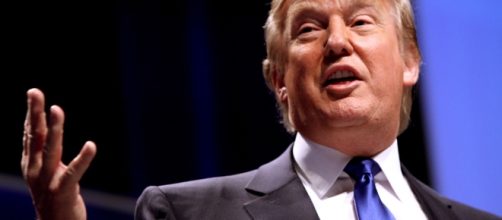In the midst of a new round of discovery involving Russia's possible involvement in the 2016 election, a draft law meant to sanction Putin regime is currently before the House Of Representatives.
The draft law is intended as a response to Russia's efforts to influence the US election as well as its ongoing provocations in Ukraine. This would increase penalties against Russian firms involved in cyber attacks and require Congressional approval for the president to lift future sanctions.
The stalled Russian sanction bill
The bill, which passed almost unanimously in the Senate, is currently in the House and both sides are accusing each other to keep up its progress.
The battle comes amid the news that Donald Trump Jr. Was contacted with a bid from Russia for injured information about Hillary Clinton during the 2016 campaign, according to new emails Trump Jr. released Tuesday.
These messages show that Trump Jr agreed to meet a Russian lawyer supposedly possessing damaging material as 'part of Russia and his government's support for Mr. Trump.' They also show that Trump Jr. emailed campaign advisor Jared Kushner And then campaign chief Paul Manafort, with both men attending the meeting. Sen. Ben Cardin, D-MD, told reporters that the news increased the urgency of adopting sanctioning legislation.
Trump administration rejects bill
The White House has rejected the part of the bill requiring it to seek Congressional approval to lift the sanctions, with senior administration officials arguing that the requirement greatly limits its ability to conduct its international relations.
Because of this, the administration has been silent in lobbying at the Capitol Hill to change the law, with the Department of Commerce and State Department officials who met with the House staff last week. Other concerns have been raised that the law would hinder US investment in Russian power projects, damaging American companies.
At their meeting in Germany, Trump and Putin discussed sanctions imposed by former President Barack Obama in December as a response to election interference, White House spokesman Sarah Huckabee Sanders said on Tuesday. This is in contradiction with the president's earlier remarks, claiming that the topic was not discussed.
Adam Schiff, D-California, a senior member of the House Intelligence Committee, said on Tuesday he was worried that lobbying by the administration would affect the bill. The separation between parties in the House of Representatives has also slowed the draft law, according to Majority Leader Paul Ryan.
Democrats have opposed a Senate amendment that would only allow the speaker to begin a review if the president wants to lift the sanctions. Republicans say this is stopping the progress of the bill.

